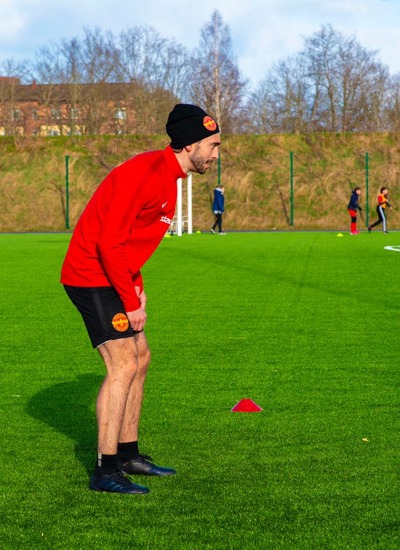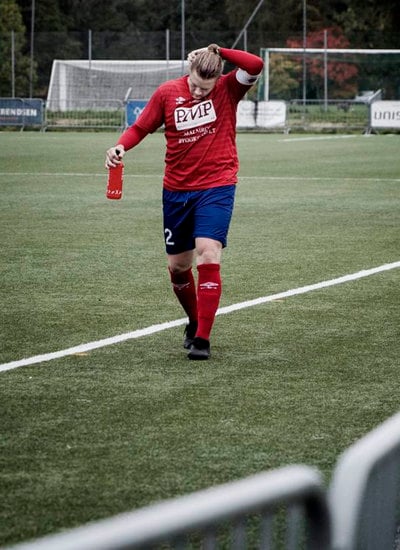
As a teenager playing in Manchester City’s academy, I missed two days of school to train per week. I supported the club, I was a ball boy at the stadium, and planned to play there in the Premier League.
My only backup plan, drilled into me by my parents, was to keep my school grades high, so I’d have options.
Thankfully, I listened. The year I left high school, I was released by Manchester City, then again two years later by League One Rochdale AFC.
I was gutted. I still wanted to follow my dreams, but I was 18 years old without a professional contract; a situation hundreds of young footballers find themselves in every year.
Even the best playing careers are short and fragile. Eventually we all need a plan for a second career.
“Only one player in our age group received the professional contract we all craved, and injury cut his career short”
— by Laurie Bell
At Rochdale, only one player in our age group received the professional contract we all craved, and injury cut his career short. My teammates who stayed in the game now play non-league football or coach. Others found jobs, studied, or went travelling.
Sadly, without the structure of football, one of my Rochdale teammates received a prison sentence, and another was wanted on suspicion of being involved in a drugs racket. After being like brothers for years, we’d lost touch, and I was shocked to read about it in the news.
All of our lives changed so quickly.
By then, I was in America. My education earned me a soccer scholarship at the University of Wisconsin-Milwaukee. It was hard leaving home, but I wanted football, adventure and new opportunities off the pitch. The university system in America offers first-class facilities and professional coaching. I could develop as a player while preparing for a second career.
The tricky part was deciding what I wanted to study.
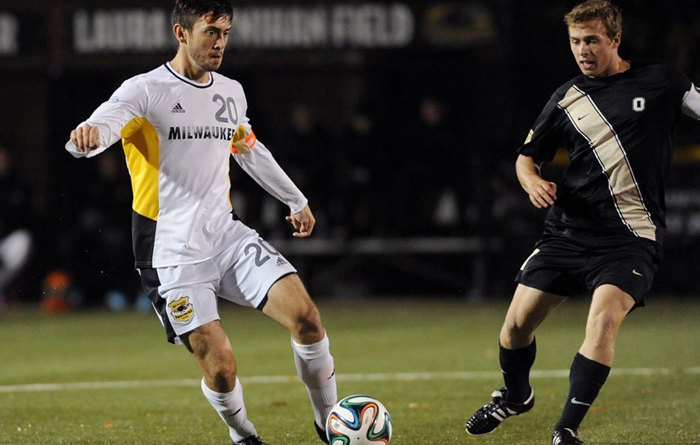
When you grow up single-mindedly following your passion – football – it’s hard to take a second interest seriously. Are you allowed to have two dreams? I decided you are. You can have as many dreams as you want.
“I want to travel the world playing football and writing,” I told professors in my freshman year. I ticked two boxes on the university website and signed up to study Journalism and English.
How do you find your other passion? I thought back to what else interested me growing up. I loved playing sports and liked the idea of writing about them too. In university, I was taught how to pursue writing as a career.
My professors’ best advice, which applies to everything, was practice through getting experience. So I began writing Bell’s Blog, a column about life on our soccer team, for the university website.
In Milwaukee, we had a talented, tight-knit team and won the school’s first men’s soccer title in eight years. As captain, I earned recognition for my goalscoring from midfield and left school early to sign my first professional contract for Tulsa Roughnecks in the American USL. My dreams were taking shape.
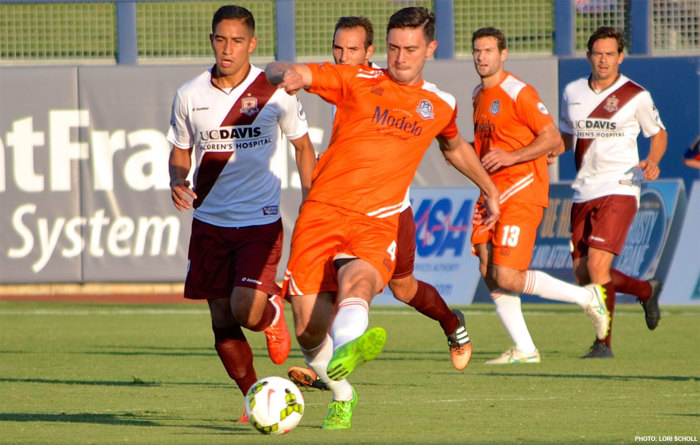
I completed my remaining university classes online and graduated during my first season in Tulsa.
As a pro, my schedule looked like this: Meet at the stadium for training in the morning, shower, eat lunch, sometimes followed by a gym session. Then I studied as my roommates Ben and Steve, who both had degrees already, enjoyed a nap. I closed my computer when they woke up and we went to kick or throw a ball around with our teammates in our apartment complex’s swimming pool.
It takes discipline, but most professional players have time to take an online class or get work experience while focusing on football.
To motivate yourself to get started it’s crucial to find something you enjoy. Otherwise, a game of FIFA or a nap beats career-building every time. Ultimately, Ben found another passion, coaching, and Steve still plays while studying for a postgraduate degree in finance.
“Are you allowed to have two dreams? I decided you are. You can have as many dreams as you want”
— by Laurie Bell
When I left Tulsa, I stuck to my plan to travel the world playing football and writing. After half a season back in Manchester, I landed in Sweden, a beautiful country with a relaxed lifestyle where I felt welcomed immediately. I’m still here, playing for Örebro Syrianska in the Swedish third division.
Life is good, but football seasons only run for seven months in Sweden and many professional players here rely on a second income. Short-term contracts and unpaid off-seasons are the reality for most football players.
For me, pursuing a second career is part of my football journey. As well as playing and writing, I work for a sports technology company called Heja. I was hired as an English language copywriter and I’m now Marketing Manager for its sports team app.
I work around my football schedule, which includes training every weekday and overnight away trips to the far north of Sweden. I’ve helped more than 100,000 sports teams sign up to the app, and gained experience in business and marketing.
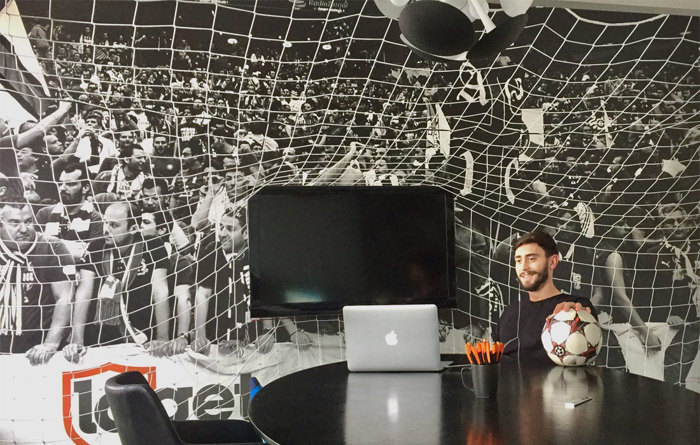
How do you find opportunities while you play? For me, one opportunity has led to another.
A university blog post turned into my final piece of coursework, and an article in The Guardian. Another article connected me with FIFPRO, and here I am writing this! When Oskar, my former Heja colleague, read in the local newspaper about a new player in town who’s a writer too, he bought me lunch and offered me a job. I’ve been lucky. But you can earn some luck by getting started.
I often email questions to people I admire or whose jobs look cool. By being genuinely curious, I usually find they are happy to offer advice or even help me get my foot in the door.
Being a professional footballer is the best job in the world, but you’re allowed more than one dream. Getting released by Rochdale at aged 18 opened a door to new, eye-opening experiences. Looking back, I wouldn’t swap those experiences for the one-year contract in English football that I so craved at the time.
Reach out to me on Twitter @LBellBell if you have any questions.
